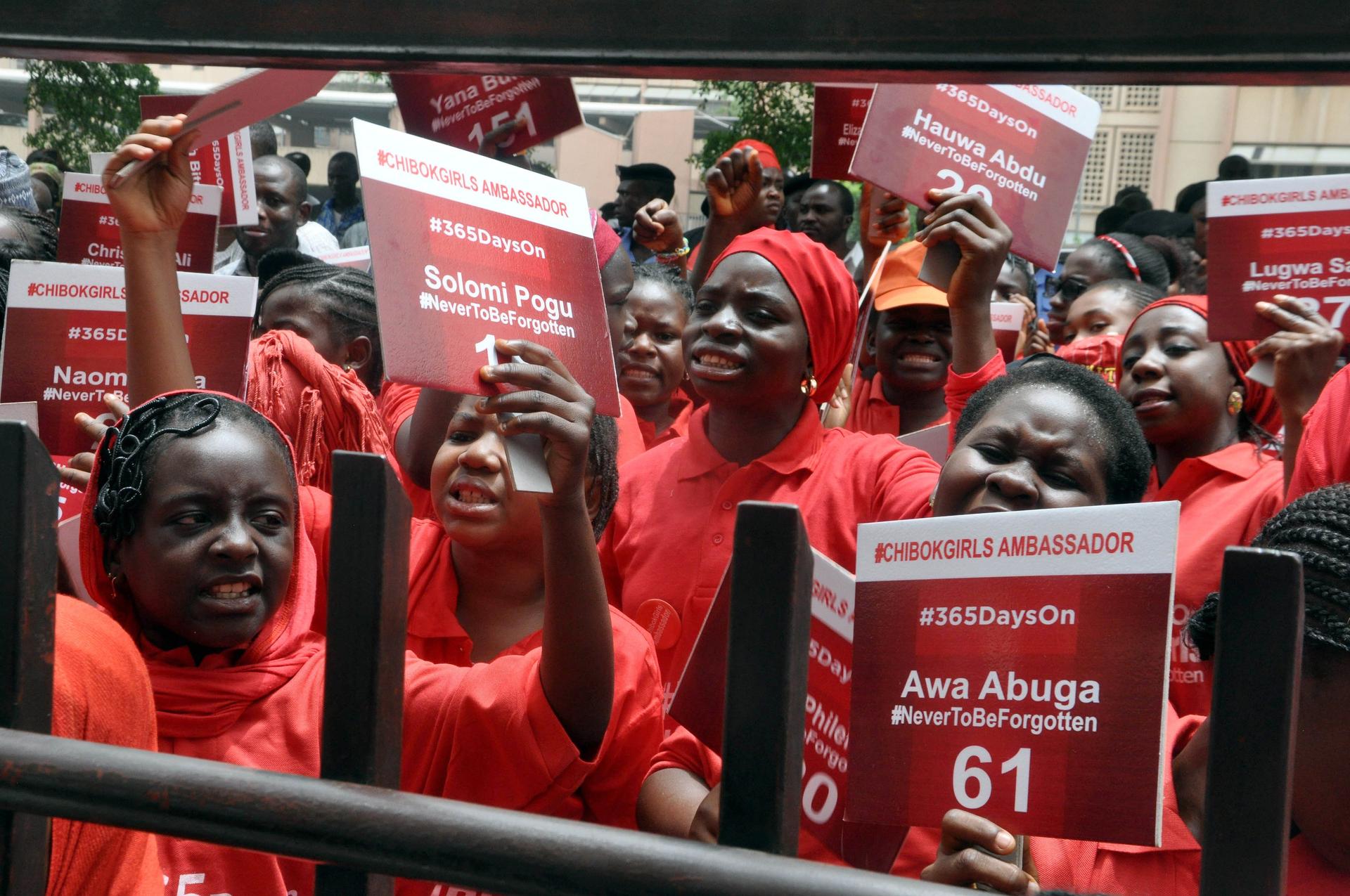Nigeria has rescued 300 women from Boko Haram. But no one is sure how many are still missing
Children under the auspices of Chibok Girls Ambassadors march to press for the release of 219 schoolgirls abducted by Boko Haram Islamists during a demonstration at ministry of education in Abuja, on April 14, 2015.
JOHANNESBURG, South Africa — As the Nigerian military reports more women and children rescued from Boko Haram's stronghold in the Sambisa forest, a familiar question arises: are these the "Chibok girls"?
Boko Haram, after years of terrorizing northern Nigeria, drew the world's attention when fighters kidnapped more than 200 schoolgirls from the town of Chibok in April 2014.
Political figures and celebrities, from Michelle Obama to Justin Timberlake, joined the #BringBackOurGirls campaign on social media. A video released by Boko Haram showed the girls having converted to Islam in captivity, draped in dark, full-length hijabs.
We have heard very little since — most of it wild rumors. Nevertheless, the Chibok girls' rescue has been seen as a measure of the Nigerian government's progress in fighting Boko Haram — a lackluster effort until February, when a regional military campaign began to fight the Islamist group in earnest.
Aside from the young students of Chibok, many more people have been kidnapped by Boko Haram in Nigeria's remote northeast. According to Amnesty International, some 2,000 women and girls have been abducted since the start of last year.
Some have likely ended up as sex slaves, "married off" to the militants, or used as human shields and in some cases even forced to fight for Boko Haram. Boys, too, have been conscripted as fighters.
Earlier this week, Nigerian military officials announced that nearly 300 women and girls had been rescued from the Sambisa forest, a vast national game reserve in Borno state that stretches for more than 23,000 square miles.
While initial reports suggested these were not the Chibok students, Nigerian defense spokesman Chris Olukolade later said: "It's not wise or safe to quickly declare that there are no Chibok girls among them. One or two could be among them."
According to the Associated Press, some of the women were so affected by their time in captivity that they opened fire on their rescuers. GlobalPost reported last May about concerns the girls would be brainwashed and severely traumatized by their captors.
"The processing is continuing, it involves a lot of things because most of them are traumatized and you have got to put them in a psychological frame of mind to extract information from them," army spokesman Col. Sani Usman told the AP.
On Thursday the Nigerian military said that following a fierce battle, it had rescued another group of women and children who were being detained by Boko Haram in the forest. One woman and a soldier were killed during shootouts, and eight women and four soldiers were injured.
We don't yet know how many were rescued, who they are, or where they are from. But though they have been found, their nightmare likely isn't over.
Every day, reporters and producers at The World are hard at work bringing you human-centered news from across the globe. But we can’t do it without you. We need your support to ensure we can continue this work for another year.
Make a gift today, and you’ll help us unlock a matching gift of $67,000!
